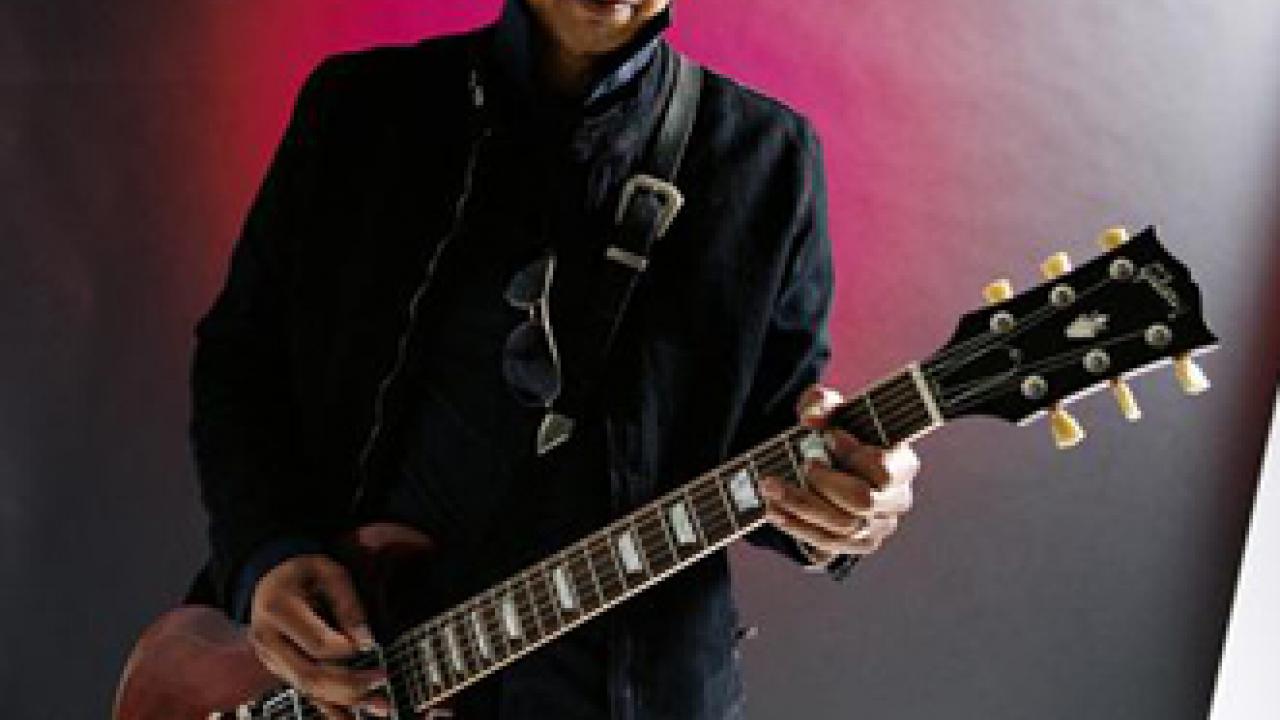UC Davis Summer Sessions and the Mondavi Center for the Performing Arts are teaming up again for the SummerMusic series on the Quad, with concerts scheduled for July 9, July 25 and Aug. 14, all free and open to the public.
Summer Sessions provides the sponsorship, while the Mondavi Center's programming staff lines up the performers, this year featuring Alejandro Escovedo, the former country-punk rocker who now performs solo, praised as a passionate, literate, hard-rocking storyteller; Dengue Fever, the Los Angeles-based indie band that saved Cambodian rock 'n' roll; and Rokia Traoré, “Africa’s answer to Joni Mitchell," as described by The Christian Science Monitor.
Each show is scheduled to begin at 7:30 p.m., with the Quad opening for picnics at 6:30 p.m. In accordance with university policy, alcoholic beverages are not permitted.
More about the performers:
July 9 (Thursday) — Alejandro Escovedo, named by Spin magazine earlier this month as “Best Rock ’n’ Roll Animal (With Strings!)” at the Bonnaroo Music & Arts Festival in Manchester, Tenn. “Through it all, he bared his heart and scars with equal aplomb, and with a feedback-drenched, dual-guitar attack that evoked the noisy glories of Lou Reed’s classic Rock ‘n’ Roll Animal,” Spin’s correspondent wrote. Escovedo’s latest album, in fact, is titled Real Animal, featuring “Always a Friend,” “Sister Lost Soul” and “Nuns Song.”
He is due to perform here with an acoustic trio.
Escovedo was a founding member of the pioneering San Francisco-based punk band The Nuns in the mid-1970s. He moved on to the bands Rank & File and True Believers, helping to forge the country-punk sound that became known as alternative country.
Escovedo's Gravity (1992) launched his solo career. Among his subsequent albums: Thirteen Years (1993), With These Hands (1996), More Miles than Money: Live 1994-1996 (1998), Bourbonitis Blues (1999), A Man Under the Influence (2001) and The Boxing Mirror (2006).
His Web site describes 2008's Real Animal as “a collective journey through Escovedo’s various musical incarnations from punk rock to string quintets, and ... as introspective as it is retrospective. Recalling the people, places and influences that helped shape his career, Real Animal represents the primitive aspect of Escovedo’s music — the instinct, the urgency and a survivor mentality that fuels his musical passion."
Listen: alejandroescovedo.com
July 25 (Saturday) — Dengue Fever, with a sound that the musicians describe as “a Cambodian pop rock psychedelic dance party!” — according to Dengue Fever's My Space page. A new documentary, Sleepwalking Through the Mekong, follows the band on its recent journey to Cambodia. There, according to the synopsis on the documentary’s Web site, the band performed 1960s and ‘70s Cambodian rock ‘n’ roll “in the country where it was created and very nearly destroyed.”
In the documentary’s trailer, a band member says the music derives from California surf music, rewritten with Cambodian melodies.
Brothers Ethan (keyboards) and Zac (guitar) Holtzman started Dengue Fever in 2001, when they discovered their shared love for Cambodian pop music. After adding saxophonist David Ralicke (Beck/Brazzaville), drummer Paul Smith and bassist Senon Williams, they went looking for a Cambodian singer.
Enter Chhom Nimol, who performed regularly for the king and queen of Cambodia. Her powerful singing, marked by a luminous vibrato that adds exotic ornamentations to her vocal lines, and hypnotic stage moves, based on traditional dances, complement the band’s driving Cambodian-American sound.
Dengue Fever has produced three albums: Dengue Fever, Venus on Earth and Escape From the Dragon House.
The Los Angeles Times hails Dengue Fever as “quite possibly the most original pop band in LA."
Watch and listen: myspace.com/denguefevermusic and sleepwalkingthroughthemekong.com.
Aug. 14 (Friday) — Rokia Traoré, representing a new generation of African musicians who respect tradition but refuse to be bound by it. The award-winning Traoré, backed by her own electric guitar, creates an exquisite, sultry soundscape that blends American soul and blues with her Malian roots.
"It all started with a sound inside Rokia Traoré’s head," according to her Web site. "The most adventurous singer-songwriter in Africa knew that she wanted to create a new musical style that was ‘more modern, but still African, something more blues and rock than my folk guitar.’
"Then she heard an old gretsch, the classic electric guitar so beloved by American rockabilly bands back in the ‘50s and ‘60s, and played by everyone from Chet Atkins to George Harrison. That was the sound she had been looking for, and it has helped to bring a fresh and startling new dimension to her exquisite and adventurous songs.”
Watch and listen: myspace.com/rokiatraore.
Media Resources
Dave Jones, Dateline, 530-752-6556, dljones@ucdavis.edu
